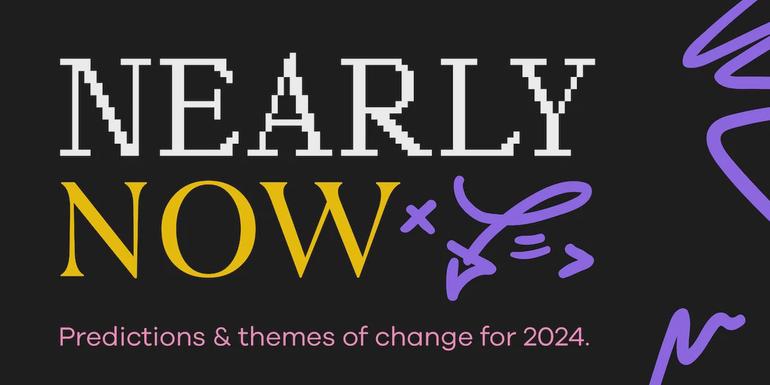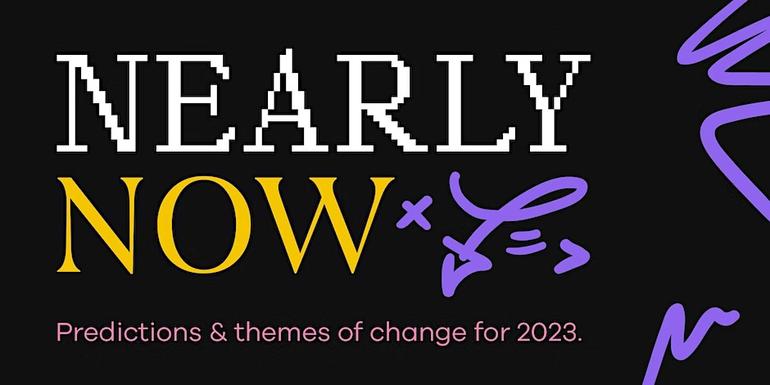
Are Your Insights Insightful Enough to Be Trade Secrets?
True insight rise to the level of trade secret: information competitors can’t easily access that creates sustainable advantage.
Everything has become commoditized, from products, to software to experiences. There are now 100+ “disruptor” mattress companies. In major urban centers, there are multiple chains serving healthy salads and bowls on every corner. With all of these products so similar, there is little to stop a hard-won customer from switching to a competitor.
How can you make your customer’s choice stickier? We believe it starts with differentiated insight into who they are and what matters most to them. Leading firms are waking up to the need to put their customers or users at the centre of everything they do—and customers are supporting this change by demanding better, faster and more convenient products and services.
But once companies have undergone the complex work of gathering and creating customer insights, they often undervalue them. At Faculty of Change, we have seen this can be seriously detrimental. In fact, insights should be treated like any other trade secret: as information competitors don’t know, and can’t easily find out, that a business leverages for sustainable advantage.
Insight: A Deeper Definition
It’s time to reclaim insight as truly insightful. What’s already known or obvious need not apply. We at Faculty of Change define insight as follows:
An insight is a transformative understanding of the people you serve, which, when acted upon, creates truly new and meaningful products, services and relationships.
Part of this shift means moving away from conducting market research to generating customer insights. Here are a few important differences between the two:
-
Market research is about asking a wide swath of “research subjects” (obvious) questions that get (obvious) answers. Insights get you unforeseen answers to questions you could not have known to ask.
-
Market research is about business risk mitigation, making sure your product will make it in the market. Insights are generative, inspiring products and strategies that set up your business for sustainable growth.
-
Market research is about creating feelings of certainty about your customers within the limited scope of a transaction. Insights are about creating understanding of and empathy for your customers, as humans as opposed to buyers.
-
Market research gets you incremental improvement and adjacent growth. Insights get you game-changing differentiation and unlock entire new businesses.
Real Insight is Rare
A non-obvious understanding of your customer is by definition hard to come by. And if you’re committed to true insight, you should not assume that if you know something about your customers, your competitors do as well.
We recently worked with a financial institution to create products that allowed it to stand out in its market. They entered the engagement with the common view that millennials are not interested in traditional life milestones like marriage, car and home ownership, and growing a family. Through interaction with prospective millennial clients, it became clear that they did hope to achieve those same milestones, but faced unique impediments to achieving them. Based on this deeper understanding, the team created a series of concepts targeted to unblock those impediments. The resulting product saw much quicker than expected market adoption.
True insight delivers “aha” moments like these, reframing how you think about your customers or your problem, and changing the course of your business for the better. Once you have them, these ways of thinking are not something you want to share. They should be kept close to home and manifested instead through what you bring to market.
The Key to Winning in the Direct-to-Consumer Age
Think back ten years. In almost every interaction with your customers there was an intermediary. Manufacturers sold through distributors to retailers. Financial products were sold through brokers and advisors. You could only rely on knowledge and feedback generated by your channel to drive your innovation. Sales people told you what was working and what was not, and that informed your strategy.
In the current reality, there are no more middlemen. The commodification of the supply chain allows for everyone to sell directly to end customers. This is happening even in industries as traditionally impervious to disruption as automotive and pharmaceutical: Tesla has gotten rid of dealers (and even dealerships) and sells directly; HIMs sells pharmaceuticals targeted to men directly, without the traditional intervention of doctors or pharmacies.
The challenge this creates is that Insights, too, can no longer be outsourced to an intermediary. The opportunity is bringing your own team and enterprise along for the ride: market impact increases dramatically once its no longer diluted by distance between you and your customers. As the way you go to market becomes disintermediated, your insights discovery and socialization should as well. At Faculty of Change, we have since the returns from insights investments increasing rapidly for firms that take this approach.
Insight As a Catalyst for AI and ML
Thinking ahead to the Future of Insights, we believe Artificial Intelligence and Machine Learning will play an indispensable role. But AI and ML models are not created out of thin air: they are trained. The systems in use by enterprise start by reviewing sample data sets and then make predictions based on the patterns found in the “training data.”
AI and ML are going to revolutionize everything you do as a business. Their impacts are already clear in areas like ad-retargeting and health care. In order to compete in the future, you will either need to invest in your own models or your own training data. If you use the same commercially available set of data about customer behaviour and preferences as the rest of the market, your outputs will be the same as the rest of the market. If you have a proprietary set of training data, then you will get intelligence and insight that no one else will have. Generating and gathering unique insights for training models is much more cost effective than investing in engineering to create proprietary models.
You may think that the transactional information you are currently gathering about your customers is ample ‘training’ data. But transactions, even in aggregate, are fleeting moments. Insights allow you to understand what led someone to make a transaction, how they choose between options, what they prioritized when making those decisions, and how it impacted their life.
In order to prepare for this certain future, you need to start creating your unique data set now. Insights play a huge part of that. We would be happy to walk you through how. True insight is not only rare: it’s a precious, powerful source of sustainable competitive advantage. Are you getting insights that transform how your business thinks, acts and wins — insights that deserve the trade secret treatment?


